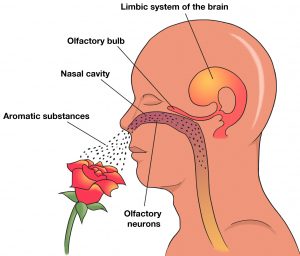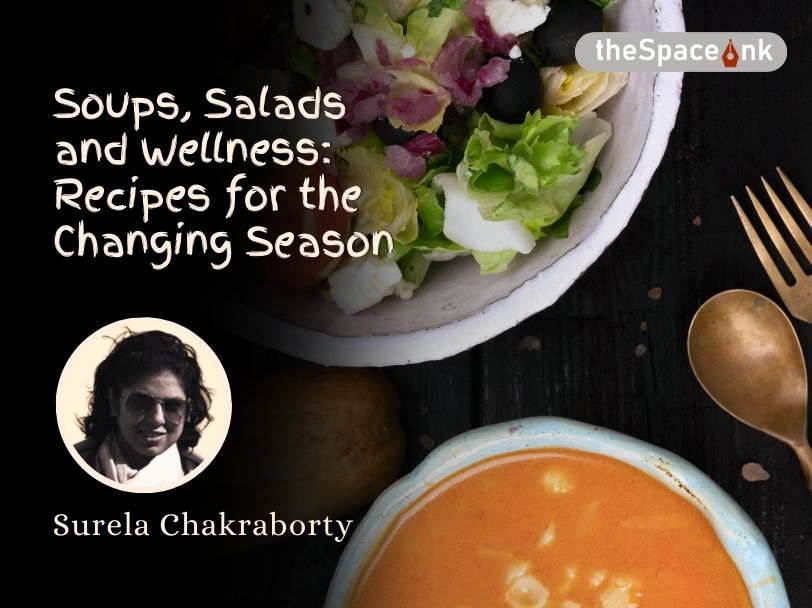It’s been over three decades now, but whenever I smell the intoxicating fragrant blooms of the lady of the night that sits in a planter on my balcony, it brings on an avalanche of childhood memories. Memories of summer dinners had outside in the moonlit garden owing to frequent power cuts, when our cook spooked us out with her stories of ghosts and snakes that the intense scent of these nocturnal blooms supposedly attracted. Isn’t it fascinating how a particular scent reminds us of a past moment of our life, of someone or someplace and the powerful emotion it evokes within us years on?
For this very reason renowned American author, Helen Keller christened smell a ‘potent wizard’ that has the power to mysteriously transport an individual across thousands of miles and many years. She wrote, “Even as I think of smells, my nose is full of scents that start awake sweet memories of summers gone and ripening fields far away,” as she drew upon her own experience where the smell of fruit often took her back to Tuscumbia, her home in Alabama.

Recreation of Days Bygone
This familiar feeling of déjà vu when a mere scent leads to a vivid recreation of a serendipitous moment of bygone days so powerful that we experience it almost in the same manner we had done years ago, comes from the close connection the olfactory bulb has with our memory and emotions. The olfactory bulb, the section of our brain responsible for smell in humans is a member of the ‘emotional brain’ or the limbic system of the brain where functions related to emotion, memory and behaviour are also executed.

When the receptors in our nose pick up a particular scent, be it of food, flowers, fruit or even an artificial fragrance like a perfume, an impulse notifies the olfactory bulb, and as a result of its strategic location, the smell triggers strong and vivid memories, instantly.
This is why a certain odour can evoke childhood memories and an emotional experience – a phenomenon scientists refer to as ‘olfactory-evoked recall’. Since odour-evoked memories can prove to be extremely emotional, they also hold the potential to impact the human sense in multiple ways. From uplifting moods, increasing positive outlook and reducing stress, scents have long been regarded for their therapeutic values and promoted for their outcome on health and wellbeing. Scents like rosemary and lavender popular with aromatherapy are renowned for de-stressing and their calming effect.
Scents Cut Back on Stress
We’re all aware of the close connection between nature and human physiology. Studies over the years have shown that the brain responds favourably to certain natural scents like those of flowers, the scent of damp soil, or of the woods. This has prompted researchers and inspired perfume experts to believe that it too can be harnessed to promote wellbeing. According to a study at the Kyoto University of Japan, the scent of pine helped cut back on stress and anxiety and evoked a pleasant feeling in those who took a walk through the pine forest. Similarly there’s evidence to suggest the scent of fresh-cut grass can help relax the nerves and make people happy.

While the chemical released from leaf volatiles could be the reason to induce happiness in humans, many people also closely associate the activity with pleasant childhood memories, of simple joyful carefree days, when they shared the task of lawn mowing with family members.
Even as I think of smells, my nose is full of scents that start awake sweet memories of summers gone and ripening fields far away,
Helen Keller Tweet
And that’s what is most fascinating. The fact that it isn’t only smell that conjures up a nostalgic picture of the past, the response the human brain triggers is far more encompassing, allowing an individual to experience that particular moment complete with its other components, like sound and taste. For French novelist, Marcel Proust, ‘the soupcon of cake in tea,’ sent his mind into an overdrive and his sensory experience later came to be popularly known as The Proustian moment, when a smell triggers a sudden, involuntary rush of memories from the past.
The Comfortable Aroma of Food
Apart from being a welcome source of nostalgia, it is also true that scents of food remind individuals of seasons, community events and long-lost family members, some even of their motherland. There is a close relationship between food and the sense of belonging. This is especially evident with comfort foods, that are not enjoyed solely for their familiar taste, but their relationship with the individual that results in a strong emotion of warmth and identity.

That’s why the aroma of certain foods trigger happy memories of past moments when the food was consumed in the comfort of homes, surrounded by loving and caring family or at a community gathering with familiar faces of hometown giving a strong sense of security and belonging. It is one of the reasons why traditional meals are often considered as comfort food to many a lonesome soul.

For every individual, a scent and the memories it conjures is a unique story to tell. For many residents who have lived long enough in Kolkata and the city is ingrained deep within their soul, this experience is probably shared. When they happen to take a stroll down Park Street around yuletide, the aroma of freshly baked plum and fruit cakes from surrounding confectionaries, are sure to remind them of the days of yore and of Christmas celebrations this city was once so popular for. As the memories of those olden days kindle brightly and warm the cockles of their heart, they would probably also recall with equal clarity the sound of the bands and live music playing from restaurants and bars with a flashback of heart-warming community bonhomie.
That’s how intense a scent can be. Mostly comforting, and always emotional!
Images courtesy: Pexels, Pixabay and Pinterest
Lesley D. Biswas is a freelance writer and children’s author based in Kolkata. Her interests include nature, bird photography and cricket.







